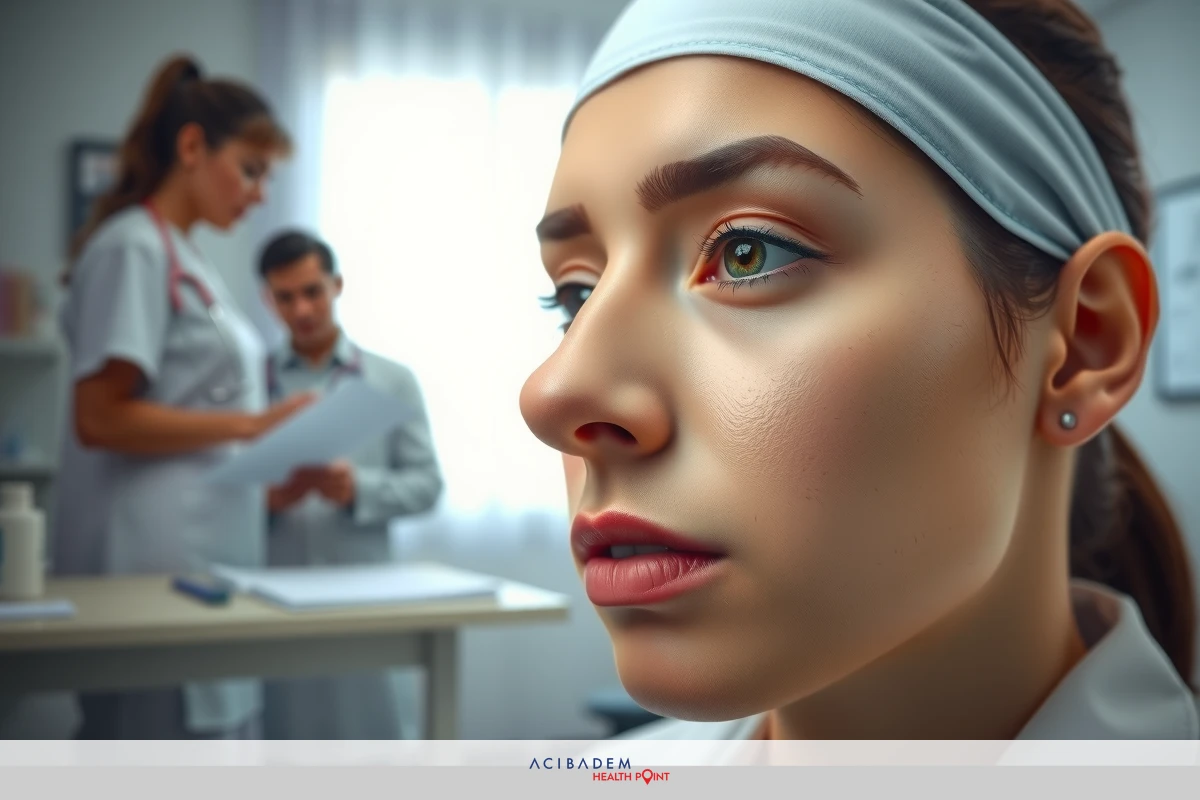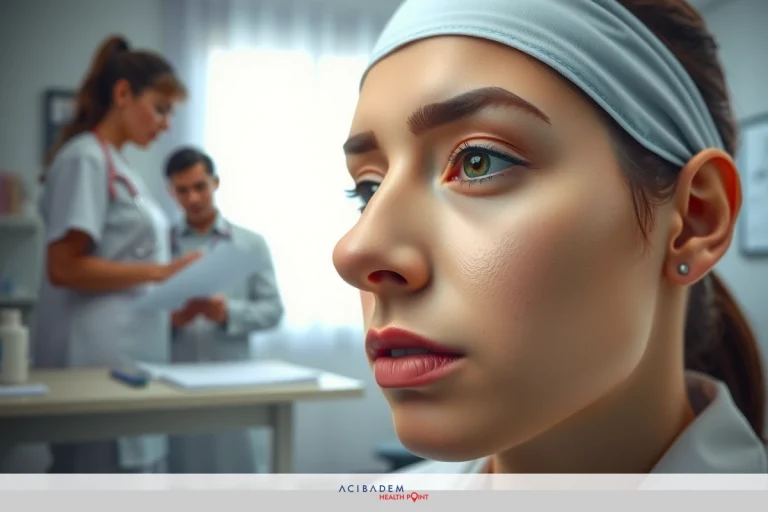How to Get Rid of a Bruise Post Rhinoplasty
How to Get Rid of a Bruise Post Rhinoplasty Rhinoplasty, the reshaping of one’s nose, is an intricate operation that can sometimes result in bruising. Most often seen under the eyes and around the nose, these unsightly blemishes are temporary but may cause distress for patients eager to see their new appearance.
The causes of this bruising range from individual skin sensitivity to surgical technique. Unpacking these factors offers insights into prevention. Yet bruises do occur, and when they do it’s essential to know how best to treat them at home with safe and natural remedies.
Consulting your insurance company about coverage for post-rhinoplasty bruise treatment can also be beneficial. The fine print of medical insurance policies often hides valuable information about what is covered – including treatments you might not expect! Armed with knowledge on preventing and treating post-rhinoplasty bruises as well as understanding potential coverage options makes navigating recovery smoother.
Causes of Bruising
Bruising post rhinoplasty is not uncommon and can be caused by various factors. Primarily, the physical trauma to the skin and tissue during surgery can lead to bruising as blood vessels are disrupted. The more extensive the reshaping of the nose, particularly if it involves bone or cartilage manipulation, the higher likelihood of significant bruising.
Individual patient characteristics also play a role in post-rhinoplasty bruising. For instance, some people naturally have thinner skin or a greater number of capillaries near their skin’s surface which makes them more prone to such discoloration. Additionally, certain lifestyle habits like smoking or consumption of blood-thinning medications and supplements pre-surgery could intensify one’s susceptibility to bruise.
Understanding these causes allows for effective prevention measures in advance. Patients planning for rhinoplasty should share all medication and supplement intake with their surgeon beforehand so any necessary adjustments can be made; cessation of smoking is also advised prior to surgery due to its negative impact on healing outcomes. On top of this, certain techniques used by surgeons such as gentle handling of tissues and use of modern tools that minimize trauma may contribute significantly toward reducing chances of postoperative bruises.
Home Remedies for Bruise Healing
Post-rhinoplasty bruising, while typically temporary, can be a source of discomfort and concern. Fortunately, there are several home remedies available that could potentially speed up the healing process and reduce the visibility of these bruises.
- Cold Compress: Applying a cold compress to the affected area immediately after surgery reduces inflammation and slows down blood flow to the area, limiting bruise formation. It’s important not to apply ice directly on skin; instead use a cloth or towel in between.
- Elevation: Keeping your head elevated as much as possible during recovery helps minimize swelling and can also alleviate bruising by reducing blood flow to the face.
- Pineapple Consumption: Pineapple contains bromelain which has anti inflammatory properties and may help reduce swelling and accelerate healing time.
- Gentle Massage: Once your doctor gives you permission, massaging around (not on) the treated area increases circulation which aids in quicker dissipation of pooled blood caused by bruises.
- Hydration & Nutrition: Drinking plenty of water post-surgery assists in flushing out toxins from your body while eating foods rich in Vitamin K like leafy greens helps repair damaged capillaries thus speeding up

The image shows a woman in medical attire with her face close to the camera, giving an intimate view of her facial features. She has a neutral expression and appears to be focused on something. bruise recovery.
Please note though that despite their effectiveness, these remedies should not replace professional medical advice but supplement it for optimal results post rhinoplasty treatment!
Consulting Your Insurance Company
While handling post-rhinoplasty bruising might seem daunting, it is crucial not to overlook the role your insurance company can play in managing such incidents. Understanding what aspects of your recovery process they cover could significantly lighten your financial load and contribute towards a stress-free healing period.
Approaching your insurance provider does not have to be an intimidating task. Start by reviewing the policy you hold with them, paying close attention to sections that discuss surgical procedures and their aftermaths. Bear in mind that while some companies may primarily focus on covering the operation itself, others might extend their coverage to include post-surgical complications like extensive bruising or other unanticipated reactions.
In case any areas of your coverage plan remain unclear after this review, do not hesitate reaching out directly to a representative from the company for clarification. They can provide detailed insights into exactly what treatments are covered under which circumstances, how much you would need to pay out-of-pocket if at all and guide you on how best to file any necessary claims related to your rhinoplasty recovery phase. This direct communication ensures there are no surprises down the line when it comes time for reimbursement.
https://www.acibademhealthpoint.com/how-to-get-rid-of-bruising-after-knee-replacement-surgery-2/
How to Get Rid of a Bruise Post Rhinoplasty: Frequently Asked Questions
How long does bruising typically last after a rhinoplasty procedure?
Everyone's body responds differently to surgery, but generally, post-rhinoplasty bruising starts to fade within 7-10 days. Depending on individual factors such as your age, overall health and lifestyle habits like smoking, the complete resolution of bruises may take up to 2 weeks or more.
Can I prevent bruising altogether after my rhinoplasty?
While it is difficult to completely avoid any form of discoloration post-surgery due to the invasive nature of the procedure, there are measures you can take preoperatively - like avoiding certain medications and supplements known for thinning blood- that could minimize your chance of significant bruising.
What should I avoid during my recovery period to ensure optimal healing?
Avoid strenuous activities and exercises for at least two weeks following surgery as they increase blood flow which might exacerbate swelling or bleeding. Similarly abstain from alcohol consumption and smoking because both can slow down your healing process significantly.
Will insurance cover any part of my post-rhinoplasty recovery treatments if needed?
It greatly depends on your specific insurance policy. Some policies might include coverage for complications arising from surgical procedures while others do not. Consulting with an insurance company representative directly will give you a clearer picture about what is covered under your plan.











